CHIRP Report: Diving SOP’s not followed
This case highlights how a severe lapse in communication and procedures could have caused serious injury – or worse…

The following case study is from CHIRP Maritime’s Superyacht Feedback. It is the first superyacht-specific programme and publication dedicated to improving safety in the maritime industry through vital knowledge sharing, anonymous reporting, analysis and feedback via the Superyacht Maritime Advisory Board.
Initial report
A near-miss incident during a routine maintenance operation on a 60-metre commercial sailing vessel could have had severe consequences. The task involved cleaning the generator sea chest inlet, which had become clogged with weeds. An Alpha flag was hoisted, indicating a diver was in the water, and a permit to work was signed and issued. The first mate oversaw the operation from the deck, using a tagline tied to the diver and timing the manoeuvre. Meanwhile, the engineer was ashore.
While the master was also ashore, he called the first mate and a long conversation ensued, distracting the mate from his duties. Unbeknown to the first mate, the engineer returned to the vessel and, failing to notice the Alpha flag, proceeded to start the engines and test forward and aft propulsion as previously instructed by the master. This action was totally at odds with the current diving operation and indicated a severe lapse in communication and procedures.
Several critical errors contributed to this dangerous situation. The permit to work was not issued to the engineer, leaving them unaware of the ongoing diving operations. Additionally, no measures were taken to prevent the engine from being activated during this high-risk task. Consequently, the propeller began turning approximately 25 metres from where the diver was working underwater. Tied to the deck by the tagline, the diver could not swim away from the turning propeller, which could have resulted in a severe accident or even a fatality. The first mate’s distraction during the telephone call with the master allowed this hazardous situation to develop unchecked.
CHIRP Comments
This incident underscores the importance of rigorous communication, adherence to safety protocols and the need for all crew members to be fully informed of ongoing operations to prevent similar near-miss events in the future.
The hoisting of the Alpha flag is a requirement when a diver is down but ineffective on board the vessel when key crew members are omitted from the work planning meetings. In this case, the lock-out tag-out try-out (LOTOTO) barrier control is required, to ensure all ship’s staff are alerted to the work activity that is planned for this time.
CHIRP wonders who ‘owned’ the permit to work in this incident. The permit needed to be completed fully. It is also clear that this work was communicated to only some crew members and there was a communication breakdown.
We repeat our emphasis on the level of education and qualifications of the diving crews that sail on superyachts concerning their levels of qualification and reiterate that if you do not possess the necessary diving qualifications for the work activity, you must not carry out the work.
Consider this work activity from the point of view of the diver tasked with carrying it out. How confident would you be that your safety is being adequately managed?
The officer assigned to look after the diver spoke with the master on the telephone, an apparently dangerous distraction. At the same time, the master had requested that the engineer, unaware of the diving operation, conduct tests of the vessel’s propulsion systems, a conflicting work activity given the diving operation being carried out.
We repeat our emphasis on the level of education and qualifications of the diving crews that sail on superyachts concerning their levels of qualification and reiterate that if you do not possess the necessary diving qualifications for the work activity, you must not carry out the work. If you have the required qualifications, you must take ownership of the permit to work and insist that its requirements have been thoroughly implemented and resourced. Otherwise, no diving operation takes place.
Factors related to this report
Alerting: Alerting with signal hoists is correct but can only be effective if it is part of a permit-to-work system made known to everyone on board.
Situational awareness: Diving operations are high-risk and must be prioritised by everyone. Knowledge that a diver is below the hull must be shared with everyone. It is not an isolated work activity. If you are trained to carry out diving work on your vessel, do you insist this work is prioritised over everything else? Do you check and sign off the permit to work?
Distractions: Clearly, the diving supervisor was distracted by a call from the master, who was ashore. How would you react if you received a call while supervising a diving operation? There were also conflicting work activities planned for this day, such as testing the engines as agreed by the master.
Communications: Work planning meetings did not appear to address conflicting work activities simultaneously with the diving operation. Do you have a section on conflicting work activities at your work planning meetings?
Culture: Is your safety culture strong enough to inform the master that the call cannot be taken now because you are attending to the diver?
To register to CHIRP or submit your feedback, please click here.
Profile links
NEW: Sign up for SuperyachtNewsweek!
Get the latest weekly news, in-depth reports, intelligence, and strategic insights, delivered directly from The Superyacht Group's editors and market analysts.
Stay at the forefront of the superyacht industry with SuperyachtNewsweek
Click here to become part of The Superyacht Group community, and join us in our mission to make this industry accessible to all, and prosperous for the long-term. We are offering access to the superyacht industry’s most comprehensive and longstanding archive of business-critical information, as well as a comprehensive, real-time superyacht fleet database, for just £10 per month, because we are One Industry with One Mission. Sign up here.
Related news
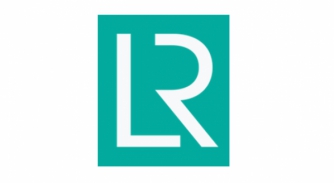
Lloyd’s Register launches safety survey
With greater scrutiny on industry-wide safety standards, the classification society urges you to have your say in its Yacht Safety Culture & Wellbeing Surve
Crew
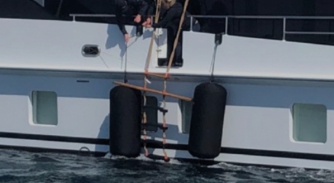
CHIRP report: Unsafe pilot transfer arrangements
A concerning example where the lack of safety considerations meant SOLAS regulations for boarding arrangements were impossible to meet
Crew
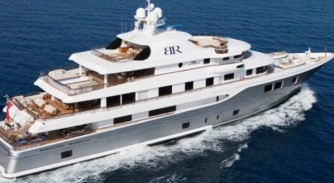
Lesson learnt from Baton Rouge
The MAIB investigation has revealed that the death of a crew member was preventable, so what urgent measures can be taken to prevent future incidents?
Crew
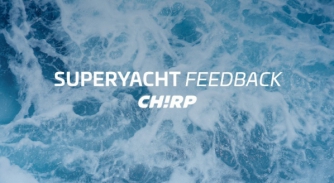
Chirp Report: Lack of safety assessment by the master
This report illustrates why not following safe working practices can be a risky business
Crew
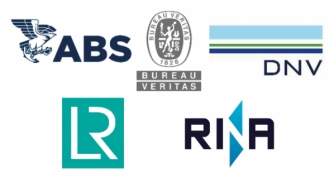
Class societies unite to form new environmental and safety consortium
New group collaboration announced to help improve the industry’s safety and environmental impact
Business
Related news
Lloyd’s Register launches safety survey
1 month ago
CHIRP report: Unsafe pilot transfer arrangements
2 months ago
Lesson learnt from Baton Rouge
4 months ago
NEW: Sign up for
SuperyachtNewsweek!
Get the latest weekly news, in-depth reports, intelligence, and strategic insights, delivered directly from The Superyacht Group's editors and market analysts.
Stay at the forefront of the superyacht industry with SuperyachtNewsweek



